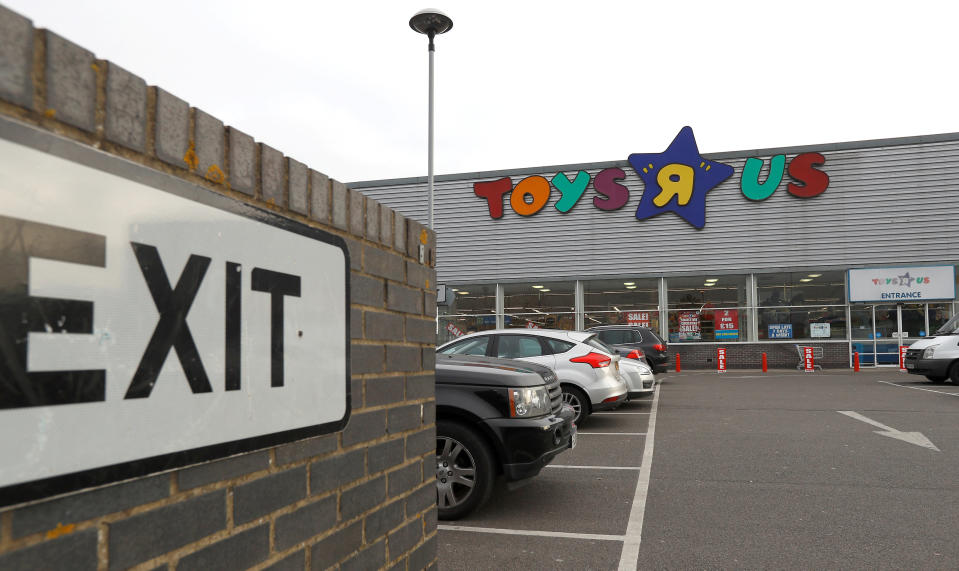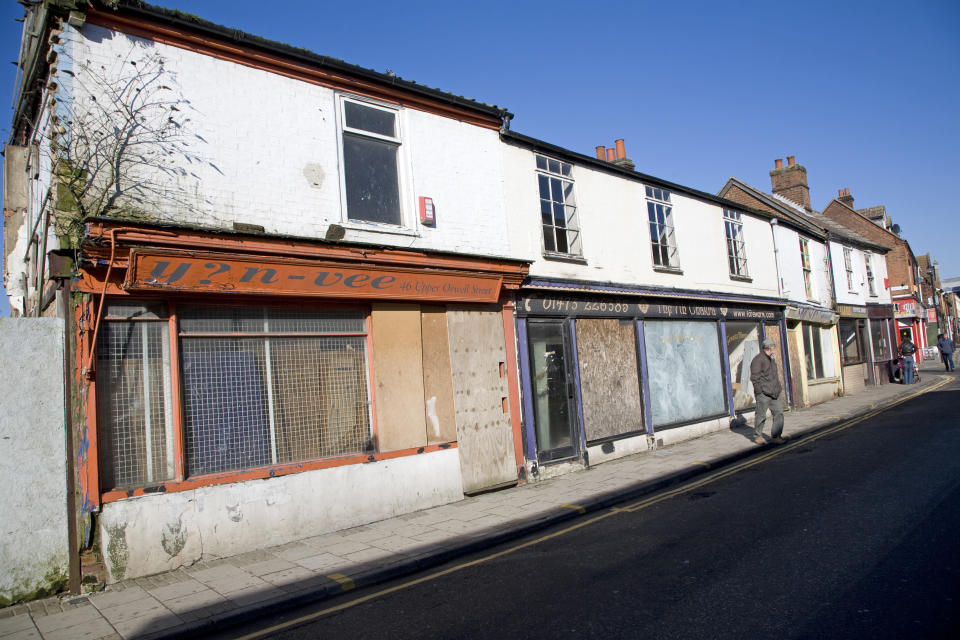What is the future for Britain's high streets?

News that Toys R Us and electronics chain Maplin have fallen into administration came as little surprise.
They are the latest two big name High Street retailers to run into trouble, coming in the wake of the likes of Bhs, Poundland, Brantano and others.
Still more – the likes of Debenhams and Marks & Spencer – are struggling to find their way in the new consumer environment as online shopping grabs an ever larger share of the pound in your pocket.
Where has it gone wrong for high street retailers?
For decades, the high street was the destination for Britain’s shoppers. Consumers could walk up and down the main shopping drag and pick up their weekly grocery shop, a birthday card for granny, the latest hit music album, a newspaper, and a new screwdriver.
But the internet has changed all that.
Online retailers offer often much cheaper products, with a broader range, from the convenience of an armchair.
Popping down the shops is no longer an event, it’s seen increasingly as a chore.

It’s too simplistic to blame the internet, isn’t it?
There are many other issues that have really hit traditional “bricks-and-mortar” retailers.
Rents for in-town buildings have been rising, putting a real squeeze on the bottom line. Coupled with that, business rates have also climbed.
MORE: Almost 44,000 UK retailers ‘in real financial distress’, experts warn
Real estate adviser Altus Group said that over 242,000 firms face rises of more than 3% in their business rates from April – with nearly 52,500 suffering increases of more than 20%.
A report from the Royal Institution of Chartered Surveyors in January showed demand for retail space fell for the third consecutive quarter
Chef Jamie Oliver was the latest high profile name to have to renegotiate rents with landlords as he battled to keep element of his restaurant empire afloat.
He saw a £1.6m rise in business rates, up 28% in a year, said Colliers International.
Business rates increase annually, in line with September’s Retail Prices Index, a measure of inflation, which stood at 3.9%.

What are the other issues?
Many smaller retailers, not just the big names, have called on town planners to do more to make it easier for customers to shop.
They point to fewer places to park, and those car parks that are available often charge hefty prices to park for more than an hour or so. Large out-of-town retail parks offer convenience, variety, space and parking.
MORE: Toys R Us and Maplin collapse into administration putting 5,500 jobs at risk
Town centre managers also need to encourage a wider variety of shops. Go down many high streets and you’re likely only to see charity shops, betting shops and fast-food takeaways.
Brexit has seen the value of sterling fall against leading currencies, making the cost of importing many goods more expensive.
Those costs either have to be swallowed by the retailer or passed on to the consumer.
And consumer confidence is another factor and one that is most difficult to control. Brexit dented confidence in business, industry, commerce and among shoppers.
Wages have largely been stagnant for years, barely keeping pace with inflation, bills have risen, and while interest rates have been historically low, consumers have been very watchful on their spending.

What does the future hold?
A report at the end of last year by insolvency advisory company Begbies Traynor warned 44,000 UK retailers were showing signs of “significant financial distress”.
Julie Palmer, a retail expert at Begbies Traynor, said then: “UK shoppers are savvier than ever and prepared to search online for the best deals, having grown wise to the gimmicks and discounts on offer in store, which many now realise may not be as good as they first appear.”
Today, Palmer said of the situation: “It is clear that only the strongest retail offers will survive what is one of the toughest trading environments the retail sector has seen for some time.”
MORE: Christmas shopping: who were the winners and losers?
And Neil Wilson, senior market analyst at ETX Capital, said more failures would surely follow Toys R Us and Maplin.
He told the BBC: “Ultimately this is a necessary shakeout of some pretty out-dated retailers, which though terrible for those affected by job losses, is likely to mean a leaner, fitter retail market and a more productive use of capital.”
Andy Lyon of Pricewaterhouse-Coopers added: “There is grade A shopping in places like London, Birmingham and Manchester where people will continue to head for a special occasion, when they want big stores and lots of choice. Everything else is struggling.”

 Yahoo Finance
Yahoo Finance 
